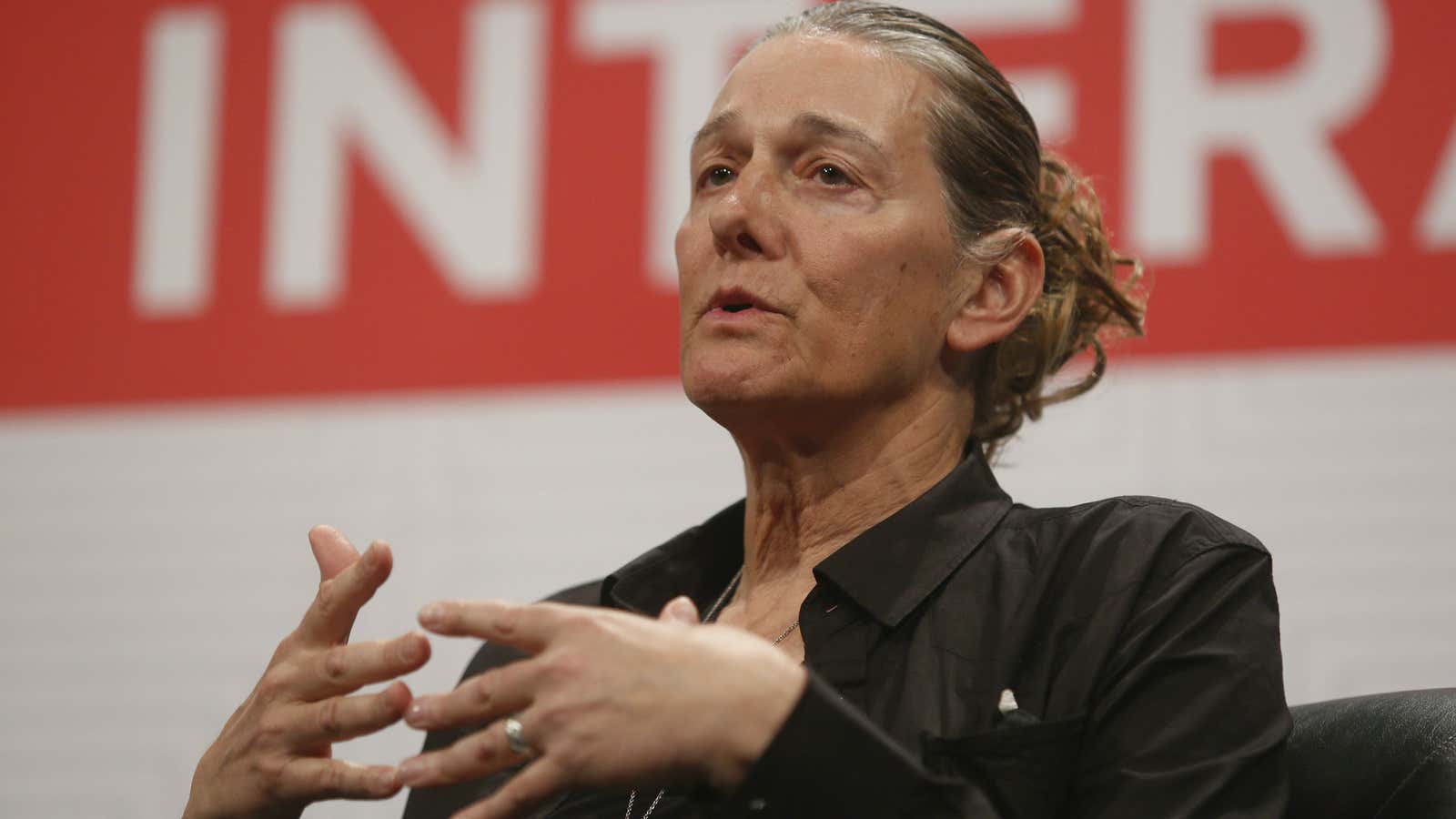AUSTIN, Texas—Martine Rothblatt talks about outlandish feats that sound like science fiction—including an explanation of how she used artificial intelligence to simulate the human brain and create a copy of her wife—in the same way most executives discuss quarterly business forecasts.
The CEO of biotech firm United Therapeutics, founder of SiriusXM radio, and America’s highest-paid female and transgender executive is also working with Craig Venter, who helped sequence the human genome, to use organs from genetically-modified pigs for human organ transplants. The goal is to come up with a way to create a never-ending supply of organs.
“When we started doing this, the longest a genetically-modified pig could survive in a bath of human blood was two hours and now that we are up to over eight days, it’s mind-blowing,” she said, in a wide-spanning conversation that drew an audience of hundreds at the South by Southwest conference.
Rothblatt also explained how she hired a team of robotic scientists to create a robot that was a “mind clone” of her wife, Bina Aspen.
Starting with a “mindfile”—a digital database of a person’s mannerisms, personality, recollections, feelings, beliefs, attitudes, and values gleaned from social media, email, videos, and other sources—Rothblatt’s team created a robot that can converse, write Tweets, and even express human emotions such as jealousy and pain in ways that mimic the person she was modeled after.
When Bina’s mortal self dies, Rothblatt said the robot version of her wife will live on, making it possible for “our identity to begin to transcend our bodies.”
It sounds like science fiction until you see photos of the robot, see her tweet, and hear snippets from her conversations that made audience members gasp and chuckle nervously as they realized Rothblatt was talking about more than just an idea.
Rothblatt launched her $6 billion biotech firm to develop a treatment for pulmonary hypertension after her daughter was diagnosed with the disease; it was approved by the FDA in 2013. And she has a long track record of making outlandish-seeming ideas work. She brought GPS navigation and satellite radio to the mainstream in the 1980s and 1990s.
So while it’s not uncommon for wealthy CEOs to talk about finding a way to live forever, when you hear Rothblatt talk about her vision for immortality, it doesn’t seem so far-fetched.
